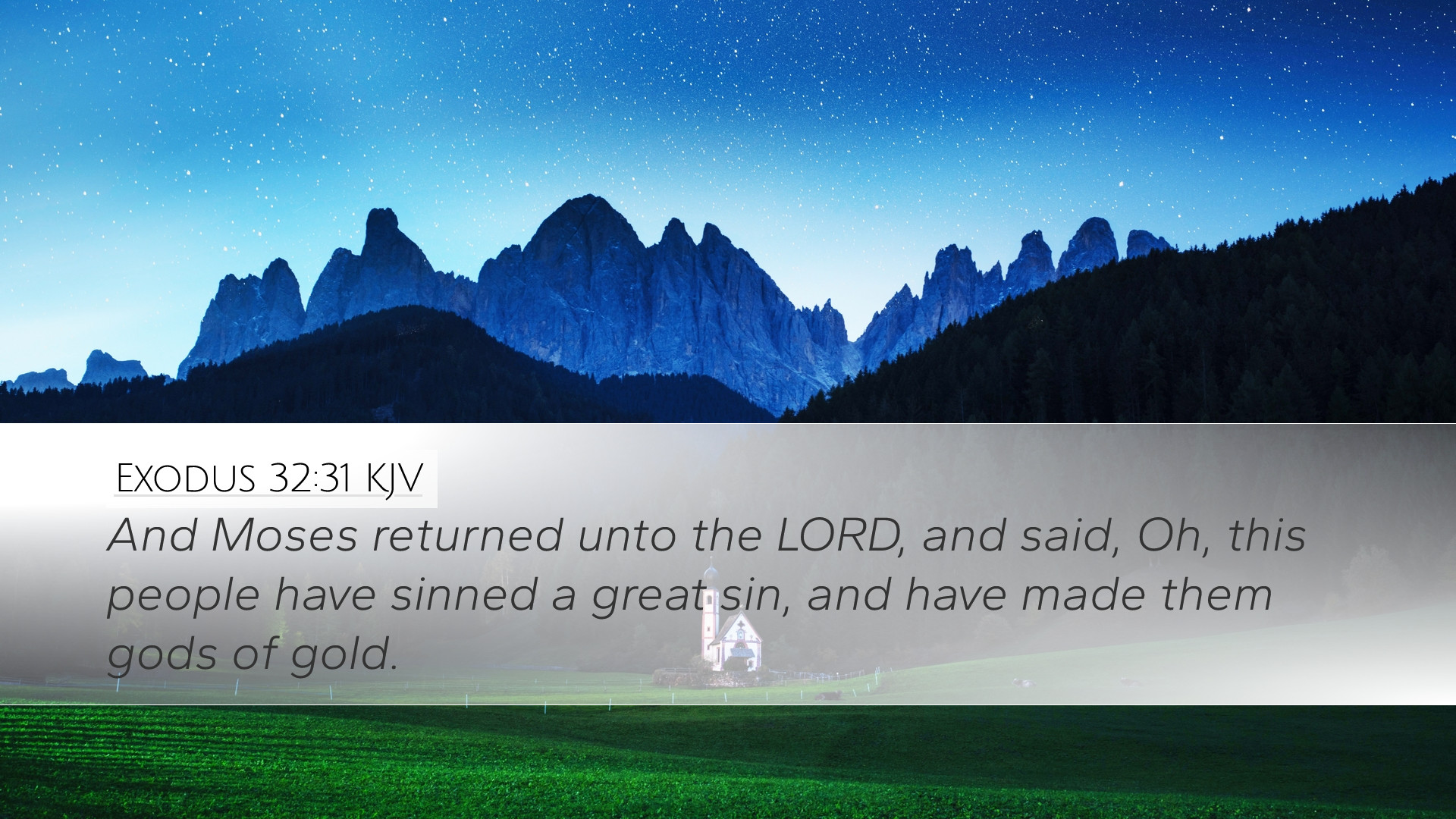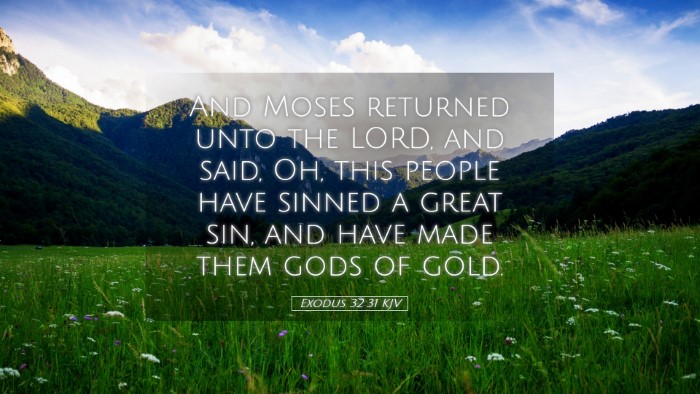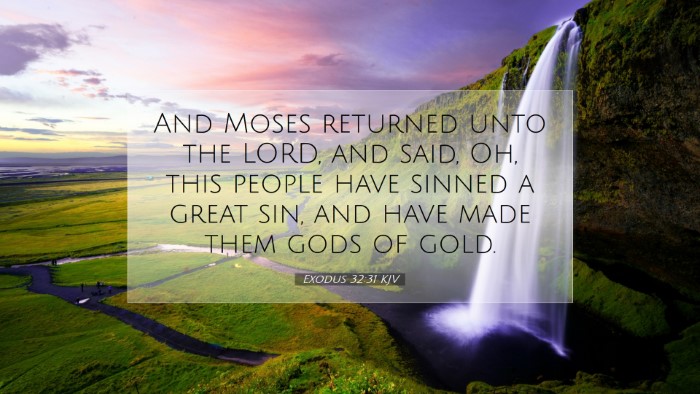Bible Commentary on Exodus 32:31
Verse: "So Moses returned to the Lord and said, 'Oh, what a great sin these people have committed! They have made themselves gods of gold.'" (Exodus 32:31, NIV)
Introduction
This verse captures a pivotal moment in Israel's journey through the wilderness as Moses confronts the sin of the people who have turned to idolatry. The act of making a golden calf symbolizes a profound betrayal of their covenant faithfulness to Yahweh. This commentary unpacks the implications of Moses’ intercession, the nature of sin, and God’s redemptive love as interpreted by several respected public domain commentaries.
The Context of Sinful Idolatry
The people of Israel, after being liberated from bondage in Egypt, quickly succumbed to the temptation of worshiping a tangible representation of a deity. Matthew Henry observes, "The making of the golden calf was not only a defiance of God but an emblem of their distrust in His power and presence." By declaring, “These are your gods, O Israel,” they repudiated the Lord who had delivered them.
Moses' Intercession
Moses’ response to God reflects both anguish and a deep sense of responsibility for the people he leads. Albert Barnes notes, "He understood the severity of their guilt; he was grieved not only for their sin but for the implications it held for the covenant community." Moses returns to God, acknowledging the enormity of Israel’s transgression and seeking mercy on their behalf. His actions are a testament to the role of a mediator—someone who stands between God and the people.
The Nature of Sin
In his exposition, Adam Clarke emphasizes the seriousness of idolatry: "Sin is characterized by a departure from the living God and a vain attempt to substitute it with earthly things." The golden calf represents the foundational sin of idolatry, which not only disobeys the first commandment but also seeks to remove the unseen God from His rightful place in favor of something man-made. The quickness of the Israelites to abandon Yahweh highlights human frailty and the susceptibility to spiritual failure.
Theological Implications of Intercession
Moses’ plea bears theological weight regarding the character of God and His willingness to forgive. As noted by Matthew Henry, "The Lord is always ready to restore those who repent, and Moses here exemplifies this intercessory spirit." This narrative demonstrates the Lord's desire for repentance and the possibility of restoration, answering the needs of fallen humanity with a pathway back to Himself.
God's Justice and Mercy
While confronting the sin of Israel, the duality of God's nature—justice and mercy—is at play. Barnes remarks, "God's judgment is severe, yet His mercy is profound. He reveals that rebellion carries consequences, but there is also hope for those who seek to return." This reflects the biblical principle that sin may lead to judgment, but through repentance, one can experience forgiveness and renewal.
Lessons for the Modern Church
In contemporary settings, the narrative of Exodus 32:31 serves as a caution against the various forms of idolatry that persist today. It reminds us that turning away from God, even in subtle ways, leads to spiritual decay. Clarke offers valuable insight: "Churches must be vigilant against the allure of the current culture, which often promotes forms of idolatry that distract from true worship." Pastors and leaders are called to shepherd their communities with discernment, ensuring that faith rests firmly in God rather than in earthly representations or distractions.
Conclusion
Exodus 32:31 encapsulates the tension of sin and the hope of redemption through intercession. The narrative urges readers to reflect on their own lives, examining areas where they may be tempted to create 'golden calves'—whether in the form of materialism, self-reliance, or cultural conformity. As scholars and leaders invest in understanding this scripture, they remind the church community of the grace found in genuine repentance and the faithfulness of God in restoring those who return to Him.


